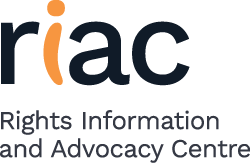Rights Information and Advocacy Centre (RIAC) has secured a $2.2 million Commonwealth grant to deliver a program to empower people with intellectual disabilities and their families and carers across regional and rural Victoria.
RIAC CEO Dr Sandy Ross said the funding will deliver an innovative program of training and self-advocacy to better integrate people with disabilities into their communities.
The three-year Information, Linkages, and Capacity Building (ILC) program will build the individual capability of people with disabilities by supporting three participant-led Peer Action Groups (PAGs) in Bendigo, Mildura, and Shepparton and three in the Barwon region: Ocean Grove, Torquay, and Bannockburn.
The program will be delivered in partnership with Grampians DisAbility Advocacy, which will support PAGs in Horsham, St Arnaud, Stawell, Ararat, and Daylesford-Ballan.
“We will support capability building based on awareness of rights and developing participants’ skills, knowledge and confidence for self-advocacy to exercise those rights,” Dr Ross said.
“The training element of the program is based on recognising that people with intellectual disabilities learn best through practical, hands-on, real-life experiences instead of traditional classroom-based methods.”
The program will also promote collaboration and inclusivity by ensuring the group participants in each service area co-design the project as it applies to them. Key elements of the program include:
• Self-Advocacy Training: Providing hands-on training and support for individuals to address important issues and build the skills to tackle them.
• Capacity Building: Enhancing advocacy services’ incorporation of self-advocacy practices.
• Collective Action: Empowering PAGs to identify and tackle community issues collectively, sharing what’s learned across all 11 local projects.
• Personal and Professional Growth: Supporting group members in achieving personal goals and strengthening and extending their self-advocacy skills.
Local projects spearheaded by the PAGs will likely involve developing partnerships with local sports clubs, businesses, and civic organisations to enhance inclusion and accessibility for people with disabilities.
“By promoting integration, inclusion, and active participation in the community, we are working towards a society where people with disabilities are fully included and can contribute meaningfully,” Dr Ross said.
For media inquiries, interviews, and further information, please contact:
Sue Masters
Communications Consultant
0448 505 517
